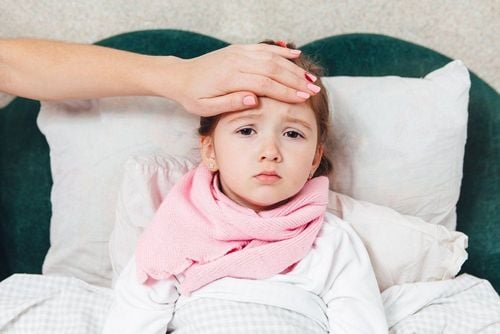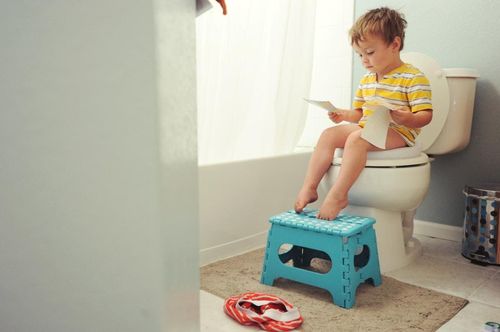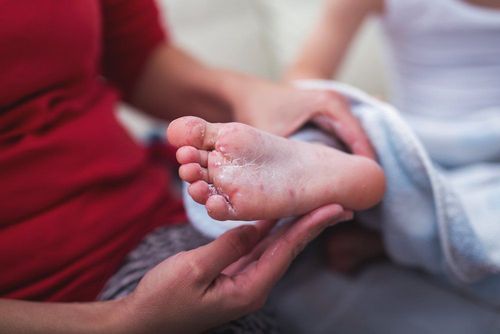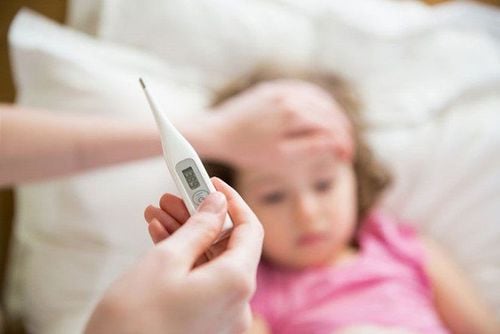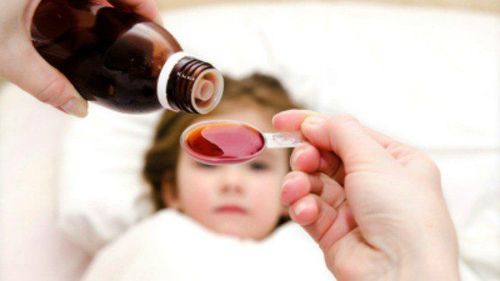This article was consulted with Dr. I. Bui Thi Ha - Pediatrician - Neonatologist - Department of Pediatrics - Neonatology - Vinmec Ha Long International General Hospital.
Hand-foot-and-mouth disease in children can be very dangerous if not detected and treated early. So how long does hand-foot-and-mouth disease in children take to heal? What are the typical signs to look for?
1. Typical symptoms of hand-foot-and-mouth disease in infants and young children
In the past 10 years, hand-foot-and-mouth disease in children has become a constant concern for many parents with young children, especially during each outbreak. Recognizing the signs of the disease early to take children to a medical facility in time, as well as knowing how to properly care for and prevent the disease, plays a very important role.
- In the early stages, the symptoms of hand-foot-and-mouth disease in children are quite similar to those of the flu. Children begin to feel tired, with a low-grade fever ranging from 37.5 to 39°C, accompanied by a sore throat.
- From 1 to 2 days later, a typical sign of the disease is the appearance of blisters on a red base in the mouth, palms, soles of the feet, and sometimes on the knees, buttocks, or around the anus in infants.
These signs are considered characteristic of hand, foot, and mouth disease, so when detected, parents should take their children to the hospital for examination and appropriate treatment guidance.
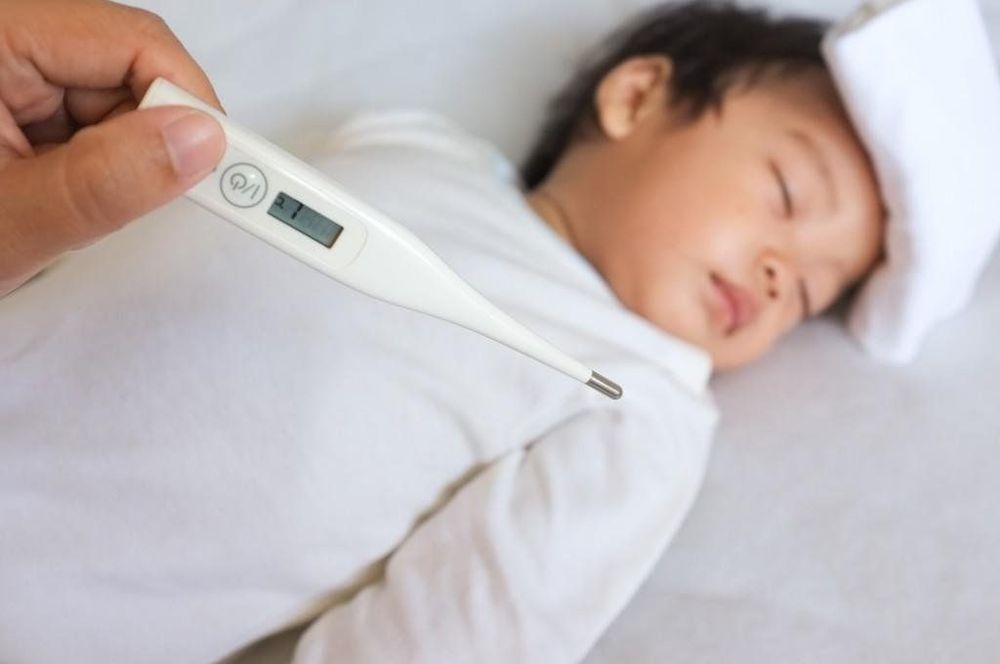
2. Cases of hand-foot-and-mouth disease without fever or rash
In addition to the common acute form, hand-foot-and-mouth disease can also exist in two other forms:
- Fulminant form: Rapid progression leading to critical condition within 24-48 hours;
- Atypical form: No clear symptoms or only one of the above symptoms appears.
Therefore, it is possible for a child with hand-foot-and-mouth disease to have no fever or no blisters in all three main locations. To avoid being subjective in caring for and treating children with severe hand-foot-and-mouth disease with extremely dangerous complications, parents need to pay special attention to the following symptoms:
2.1. Persistent crying day and night
Hand-foot-and-mouth disease in children can cause babies to cry more than usual, even continuously. At night, children may only sleep for about 15-20 minutes and then wake up crying, sometimes crying all night.
In many cases, babies cry because of discomfort from mouth ulcers and itching on the skin, however, it is also necessary to note the possibility of early-stage neurological toxicity caused by the fulminant form of hand-foot-and-mouth disease.
2.2. Vomiting
Vomiting is a fairly common symptom of hand-foot-and-mouth disease when it enters the full-blown stage. However, if the child vomits a lot, it may indicate a serious illness and is prone to complications.
2.3. Startle
Startle is also one of the common symptoms of neurological complications caused by hand-foot-and-mouth disease, which can occur even when the child is awake or asleep (occasionally raising both hands). Parents should observe whether the frequency of the child with hand-foot-and-mouth disease starting increases over time to report to the doctor in time.
2.4. Decreased urination
If a child with hand-foot-and-mouth disease without a fever urinates less, it may be an early sign of severe illness. Hemodynamic disturbances, hypotension, or kidney failure will be manifested by poor urine output. Parents should observe diapers or collect the child's urine in a measuring cup to assess the daily urine output when the child is sick, and thus have a way to intervene and treat promptly.
2.5. Difficulty in breathing, rapid breathing
Difficulty in breathing and rapid breathing can be signs of circulatory failure or respiratory complications. Difficulty in breathing in children with hand-foot-and-mouth disease is manifested by contraction of the respiratory muscles in the nose, flaring of the nostrils, difficulty in breathing, and a faster breathing rate than normal.
2.6. Altered consciousness
This is one of the signs to be especially careful of as it can warn of complications such as encephalitis, low blood pressure, ... In addition, parents should also detect early signs of drowsiness, restlessness, dizziness, ..., to hospitalize the child immediately.
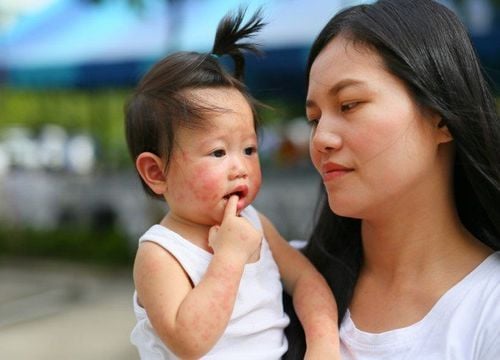
3. Caring for children with hand-foot-and-mouth disease
Many parents, whether or not their children are sick, are concerned about how long hand-foot-and-mouth disease in children will last. In response to this question, doctors say that with proper care and treatment, mild cases of hand-foot-and-mouth disease will resolve within 7-10 days from the onset.
Since there is currently no specific drug or vaccine to prevent hand-foot-and-mouth disease in children, doctors may prescribe paracetamol or ibuprofen to reduce pain and fever in patients. During the care process, relatives should pay attention to a reasonable diet because patients have sores in their mouths, making them prone to anorexia. Specifically:
- Choose foods that stimulate appetite, are cool, and contain many vitamins, such as red amaranth, Malabar spinach...
- Supplement foods rich in zinc to increase resistance and promote healing of mouth ulcers such as seafood, legumes, egg yolks, lean meat...
- Provide plenty of fluids for the body through filtered water, fresh fruit juice...
- Give children additional vitamins and minerals as prescribed by the doctor.
- Avoid spicy, hot, and hard foods.
Note that food should be blended, cooked soft, and divided into many small meals throughout the day for easy absorption by children. Do not use hard, sharp spoons to feed children as it will further hurt the sores in the mouth. In addition, do not avoid food to prevent malnutrition but let children eat according to their needs, after eating, patients also need to rinse their mouths thoroughly. For infants, they should still breastfeed as usual, and the number of times can be increased because each feeding, the child does not drink much.
In summary, the typical symptom of hand-foot-and-mouth disease in children is the appearance of blisters in three main areas: hands, feet, and mouth. Children with hand-foot-and-mouth disease may have no fever or low-grade fever, however, if it is found that the child is startled, convulsing, losing consciousness, ..., they should be taken to a medical facility immediately for emergency care as this may be an early sign of dangerous complications.
The Pediatrics Department at Vinmec hospitals nationwide is a prestigious address for receiving and examining hand-foot-and-mouth disease as well as other pediatric diseases. Vinmec has a team of experienced pediatricians, modern equipment, and professional care services, helping parents feel completely at ease when taking their children for examination and treatment.
Please dial HOTLINE for more information or register for an appointment HERE. Download MyVinmec app to make appointments faster and to manage your bookings easily.





